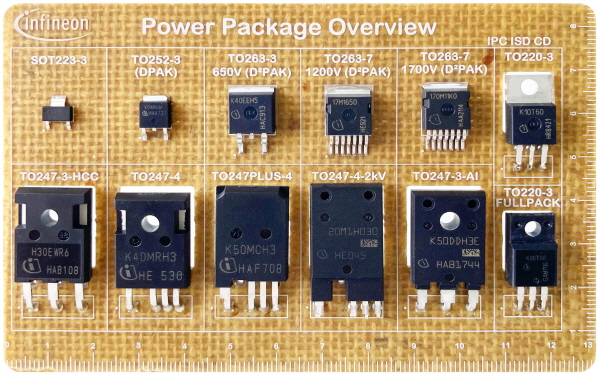인피니언 테크놀로지스(코리아 대표이사 이승수)가 재활용 가능한 PCB를 도입하며, 전자폐기물과 탄소발자국 감소를 위해 본격 앞장선다.

▲천연 섬유로 만들어진 Soluboard의 식물 기반 PCB는 뜨거운 물에 담그면 용해되고, 비료로 사용할 수 있는 유기 물질만 남는다. PCB 폐기물이 발생하지 않을 뿐만 아니라, 보드에 솔더링된 전자 부품들을 회수해서 재활용할 수 있다.
생분해성 PCB, 물에 용해 비료로 사용
인피니언 테크놀로지스(코리아 대표이사 이승수)가 재활용 가능한 PCB를 도입하며, 전자폐기물과 탄소발자국 감소를 위해 본격 앞장선다.
인피니언은 천연 섬유와 무할로겐 폴리머 기반의 재활용 가능 생분해성 PCB(인쇄 회로 보드) 서브스트레이트인 Soluboardⓡ를 도입한다고 8일 밝혔다.
이 제품은 영국의 스타트업인 Jiva Materials가 개발했으며 전자 산업의 탄소 발자국을 줄이는데 기여할 것이다.
천연 섬유로 만들어진 Soluboard의 식물 기반 PCB는 기존의 유리 기반 섬유보다 탄소 발자국이 훨씬 작다.
이 유기 구조를 무독성 폴리머로 감싼다. 이것을 뜨거운 물에 담그면 용해되고, 비료로 사용할 수 있는 유기 물질만 남는다.
따라서 PCB 폐기물이 발생하지 않을 뿐만 아니라, 보드에 솔더링된 전자 부품들을 회수해서 재활용할 수 있다.
인피니언은 데모 보드와 평가 보드에 Soluboard를 사용하여 전자 산업에서의 지속가능성을 검증하는 데 기여할 것이다.
인피니언 친환경 산업용 전력 사업부의 안드레아스 콥(Andreas Kopp) 디스크리트 제품 관리 책임자는 “처음으로 컨슈머 및 산업용 애플리케이션의 전자 제품 설계에 재활용 가능한 생분해성 PCB 소재를 사용하게 되었다. 인피니언은 수명이 다한 디스크리트 전력 디바이스의 재사용 가능성을 적극적으로 연구하고 있으며, 이는 전자 산업에서 순환 경제를 촉진하는데 중요한 역할을 할 것”이라고 말했다.
Jiva Materials의 공동 설립자인 조나단 스완스턴(Jonathan Swanston) CEO는 “수성(water-based) 리사이클링 프로세스를 사용하면 귀중한 금속을 더 많이 회수할 수 있다. 또한 FR-4 PCB 소재를 Soluboard로 대체함으로써 탄소 배출을 60퍼센트 줄일 수 있을 것이다. 좀 더 구체적으로는, 1평방미터의 PCB 당 10.5kg의 탄소와 620g의 플라스틱을 줄일 수 있다”고 말했다.
현재 인피니언은 데모 보드와 평가 보드에 이 생분해성 소재를 사용하고 있는데, 모든 보드에 이 소재를 사용하는 가능성 또한 탐색하고 있다. 이렇게만 된다면 전자 산업을 좀 더 지속 가능하게 만들 수 있을 것이다.
인피니언은 유럽 위원회의 ‘그린 딜’ 정책을 따르고 있다. 이 정책은 순환성(circularity)을 우리 생활의 대세로 만들고 EU 경제의 ‘녹색화(greening)’을 가속화해 2050년까지 기후 중립을 달성하는 것을 목표로 한다.
또한 인피니언은 EU의 전기 전자 장비 폐기물(WEEE) 규정에 따라서 자사가 제조한 전자 제품의 책임 있는 수거와 리사이클링을 위해서 최선의 노력을 기울이고 있다.
인피니언은 Soluboard 기술을 사용해서 3가지 데모 보드를 제작했으며, 향후 몇 년에 걸쳐서 이러한 보드를 확대해 나갈 계획이다. 인피니언은 이미 500개 이상의 보드를 사용하고 있다.
현재 진행되고 있는 스트레스 테스트 결과에 따라서, Soluboard에서 회수한 전력 반도체의 재사용 및 재활용에 관한 지침을 제공할 계획이다. 이를 통해 부품의 수명을 크게 늘릴 수 있을 것으로 기대된다.
